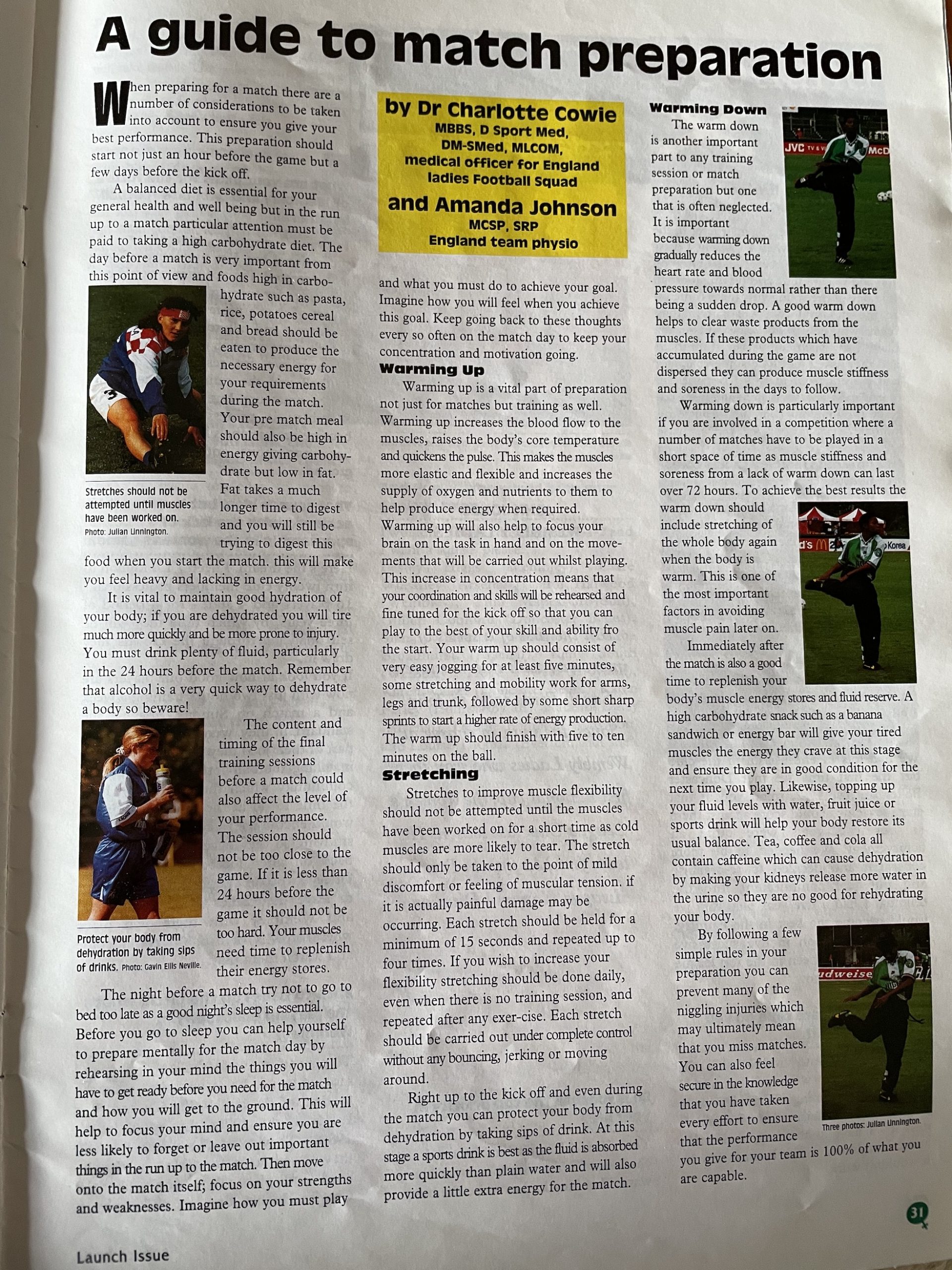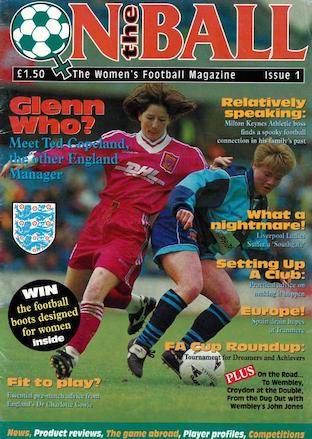
 In October 2021 we celebrated 25 years since we published our inaugural women’s football magazine. Amidst the nostalgia we also wondered, looking through the lens of some of the main features from that issue, how the women’s game has changed over that quarter of a century?
In October 2021 we celebrated 25 years since we published our inaugural women’s football magazine. Amidst the nostalgia we also wondered, looking through the lens of some of the main features from that issue, how the women’s game has changed over that quarter of a century?
One article ‘A guide to match preparation’ (read it below) was an informative overview of how to be game ready, part-written by then England Women’s Team Doctor Dr. Charlotte Cowie, who is now Head of Medicine at The Football Association. So, we had a quick catch up with the hugely influential and accomplished sports medicine professional who has been working for over 26 years in elite men’s and women’s sports…
SK: Can you describe your current position and remit at The FA/St. George’s Park (SGP)?
Dr. Cowie: I head up the medical department at the FA. I have responsibility for the medical teams that accompany England teams on camp and also oversee other medical issues within football such as minimum medical standards, cardiac screening and the research that the FA has been doing on heading, concussion and the longterm effects of football on brain health.
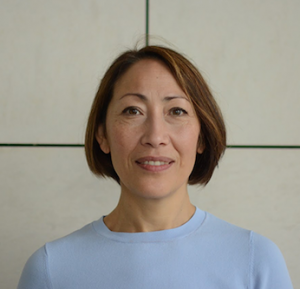
SK: What has been your journey to this position since working with the England women’s side in 1996?
Dr. Cowie: It’s been quite a long journey since then as you would expect to get the experience necessary to take up this position. I worked in men’s professional football at Millwall FC, then at Fulham FC and then at Tottenham Hotspur FC. I also worked in other elite sports, such as Tennis and Taekwondo and was privileged to be able to work at three Olympics as a medical officer for Team GB (Sydney, Beijing, London). When St George’s Park opened up, I was appointed as clinical director for the sports medicine and sports science unit which opened up there. That lead me to understand more about the set up at SGP and the England teams so was another area of experience I could bring to this role.
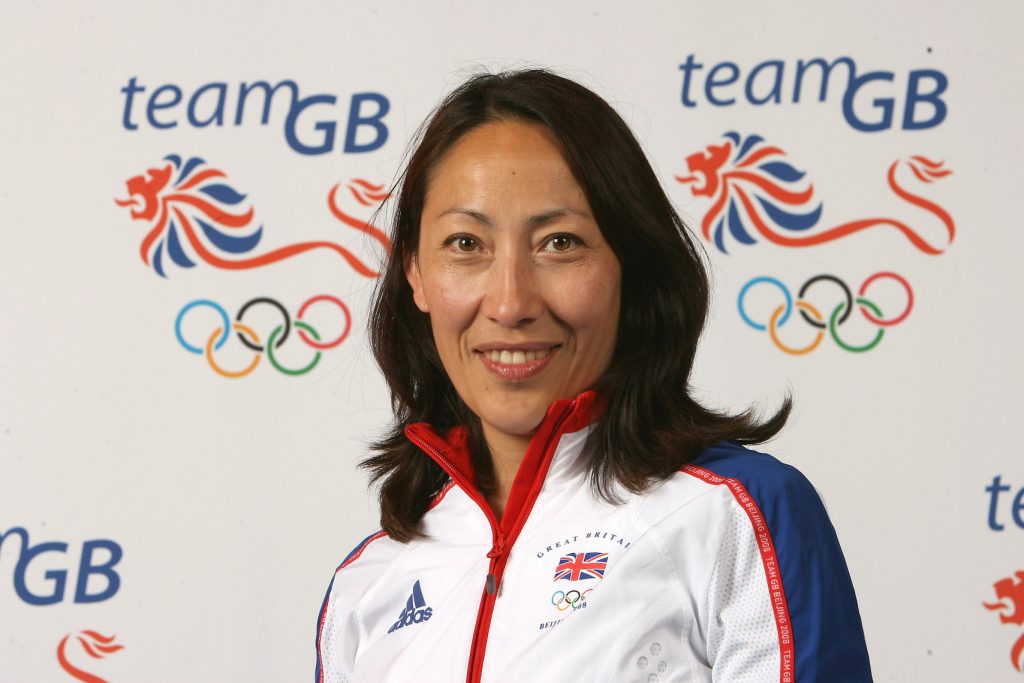
SK: What do you remember about working with the England women’s side and the resources they had available at that time compared to what national teams have now?
Dr. Cowie: Oh my! When I took up the post, I remember that everyone in the team was so pleased to have the extra resource that the FA provided when women’s football was reintegrated into the FA in 1993. The physio who travelled with the team prior to this told me that they used to carry the medical kit in a Tesco’s carrier bag!! It was great to have the same kit as the men’s teams (albeit, it was men’s kit and not women’s kit) and to have the same staffing. Obviously things have moved on massively since then and it’s great to see the advances that have come to both men’s and women’s sides, but particularly how much women’s football has grown in stature as a stand alone sport rather than simply copying the men’s game.
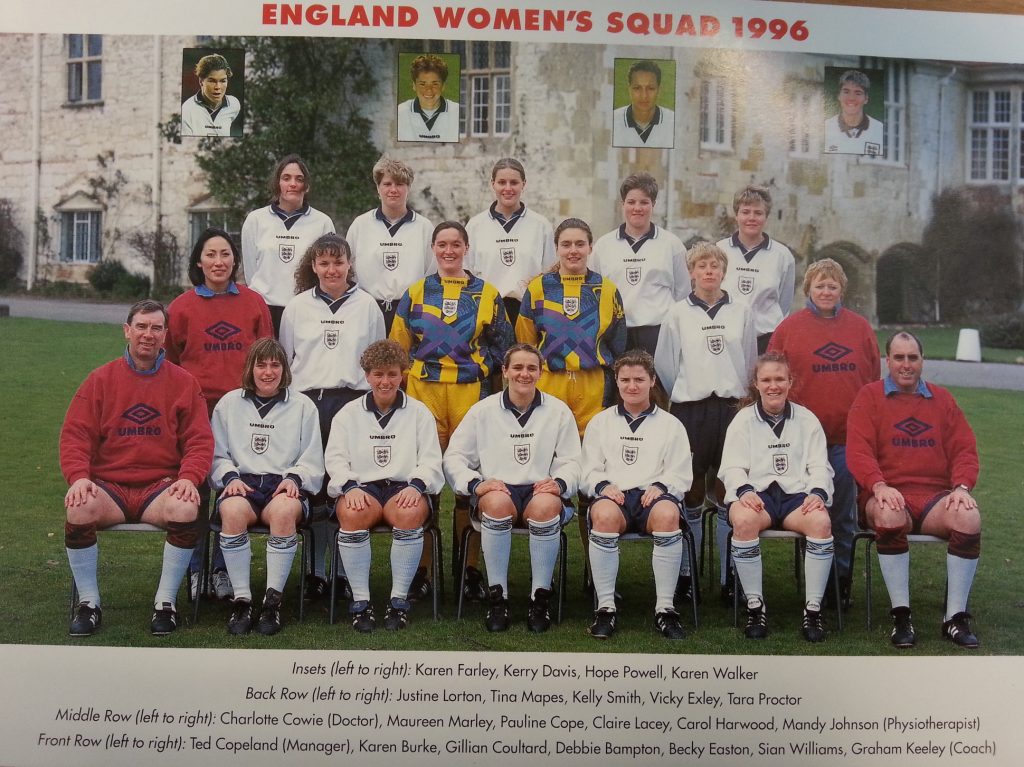
SK: How much has the general advice you offered in 1996, about preparing (nutrition/hydration), warming up, stretching and warming down changed over the past quarter of a century. Do many basics of nutrition, hydration, fitness and injury prevention remain the same?
Dr. Cowie: Perhaps one of the biggest changes is that the multi-disciplinary team that surrounds players is so much more sophisticated. No one had heard of GPS, video analysis etc and access to nutritionists, strength and conditioning coaches etc was minimal. So I guess that these days I would leave much of this advice to people who are experts in that area rather than try to cover the whole of sports medicine and science on my own. It’s great to have people working in so much detail on these things – the ‘marginal gains’ that have become so important to performance in sport since those times.
